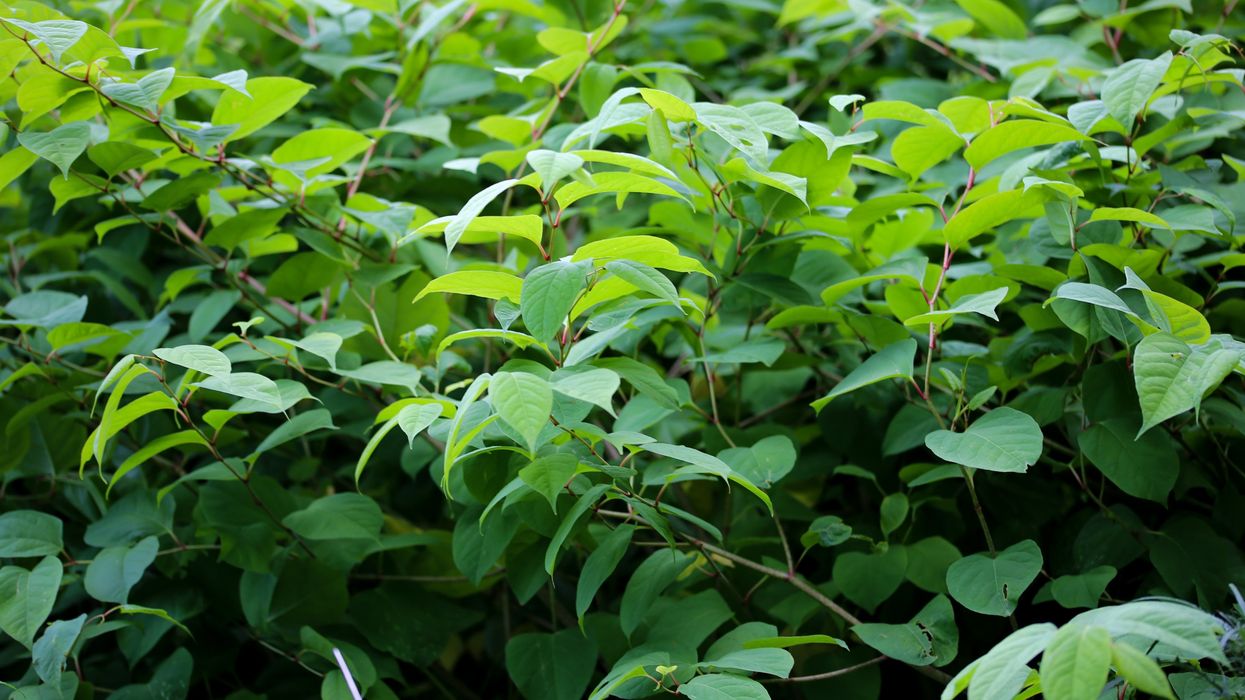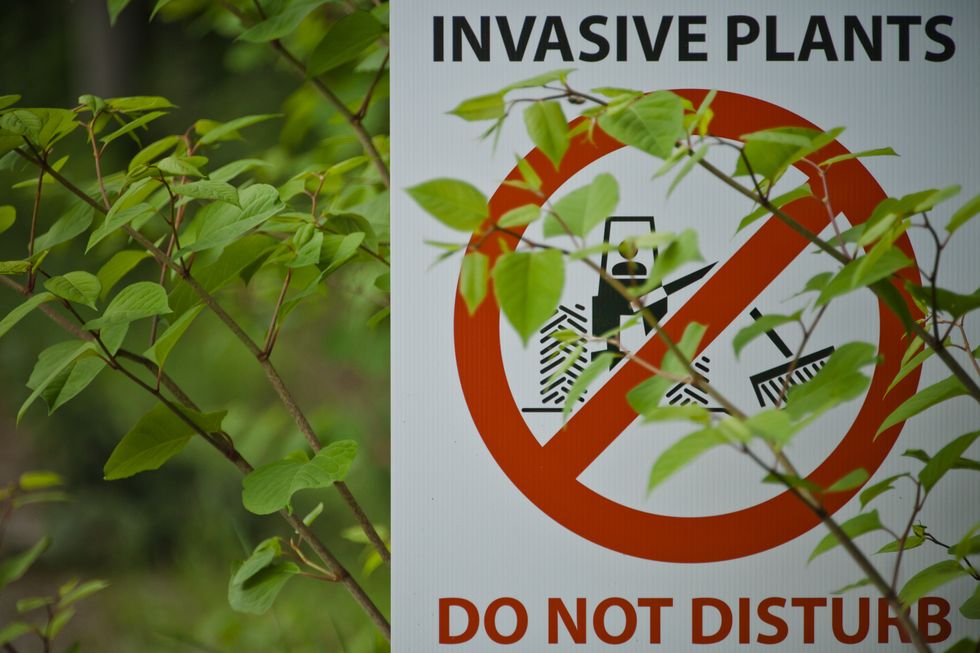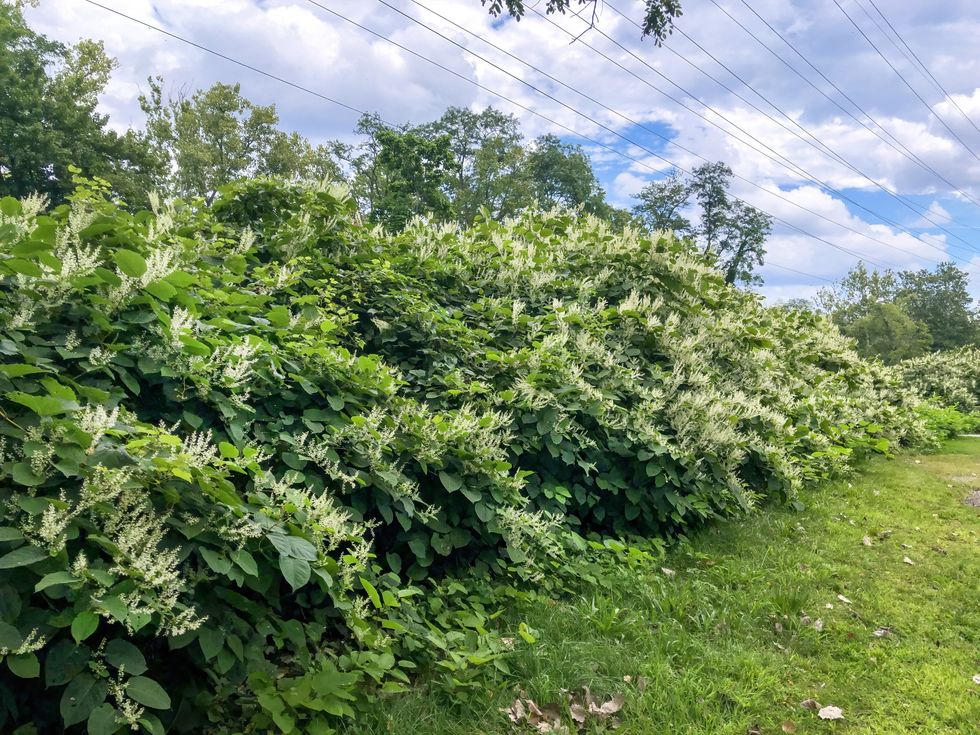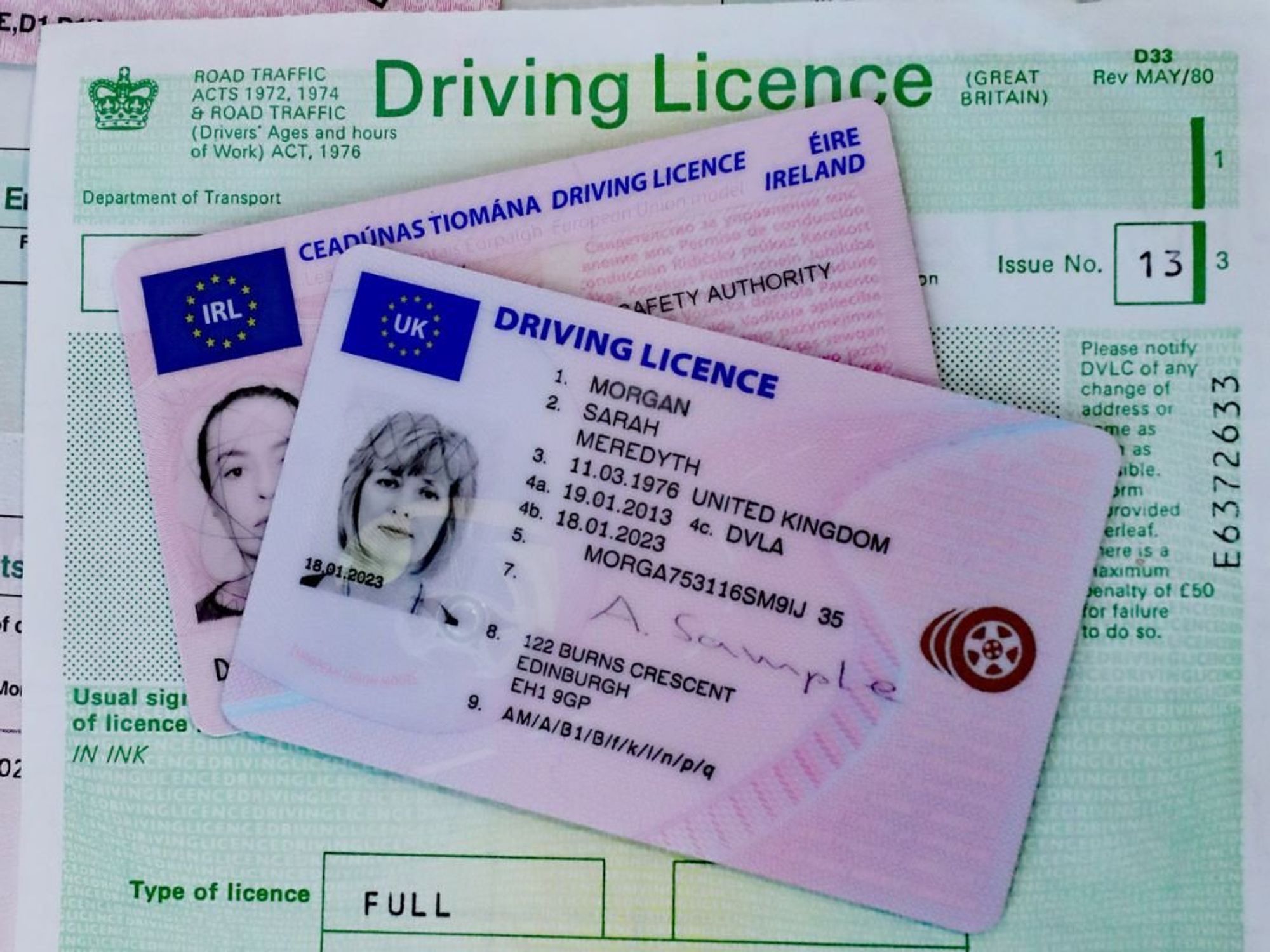UK homeowners warned of invasive weed growing at ‘alarming rate’ as it could burden them with 'costly bills'

Japanese knotweed emerged ahead of its growing season this year
|GETTY

Homeowners who spot Japanese knotweed on their property should call a professional to prevent it from spreading
Don't Miss
Most Read
Homeowners have been warned about Japanese knotweed growing on their property after the invasive plant emerged six weeks earlier than expected due to higher temperatures.
The infamous plant, which grows at "alarming rates" in April, could pose a financial burden if left unchecked, warned Tony Hill, Head of Commercial Litigation and Dispute Resolution at CEL Solicitors.
The government states that homeowners do “not have to legally remove Japanese knotweed from their land unless it’s causing a nuisance”, but can be prosecuted for causing it to spread into the wild.
Failure to deal with knotweed in the early stages can lead to costly bills, with professional removal services starting at £4,000, according to Checkatrade.

The invasive plant can grow by a meter in just four weeks
|GETTY
"We are in peak Japanese knotweed season," said Mr Hill. “After a wet winter followed by warmer temperatures, the plant comes alive and begins to grow at alarming rates.
“The issue is the speed in which it grows and how easily it can spread. It also takes specialist treatment to get rid of it.
“Repair costs can mount up if it begins to overtake vegetation or find weaknesses in buildings. These bills are passed onto the individual whose land it has originated from.
“So it’s in any homeowners’ best interests to identify and eradicate this plant as soon as possible.”
The plant first entered the UK during the 19th century due to its popularity as a decorative flower.
The first shoots appear in the early stages of spring and produce asparagus-like stems that should be removed professionally to prevent further spreading.
Mr Hill explained: “If you notice signs of the plant, get a professional straight away to treat it.
"Attempting a DIY removal could accidentally spread it further, which could make you liable for damages.
“You should also identify if you were unknowingly sold a property with Japanese knotweed.
"Vendors are legally required to disclose if their property is, or ever has been, affected by the plant.”
LATEST DEVELOPMENTS

Homeowners can take legal action against other landowners if knotweed breaches they property
|GETTY
Property owners should note that if it is breaching from adjacent land, they can take legal action against the landowner to compensate you for damages and the expenses to remove it.
“It is vital to take action no matter what condition the plant is in when you discover it," added Mr Hill.
“The plant will die back in autumn, the roots beginning to look a bit like bamboo canes and it can stay dormant for years but there’s no telling when it will begin to grow and take over your garden again.”
The plant can also easily be identified by its leaves, which are shovel-shaped and have a pointy tip.










